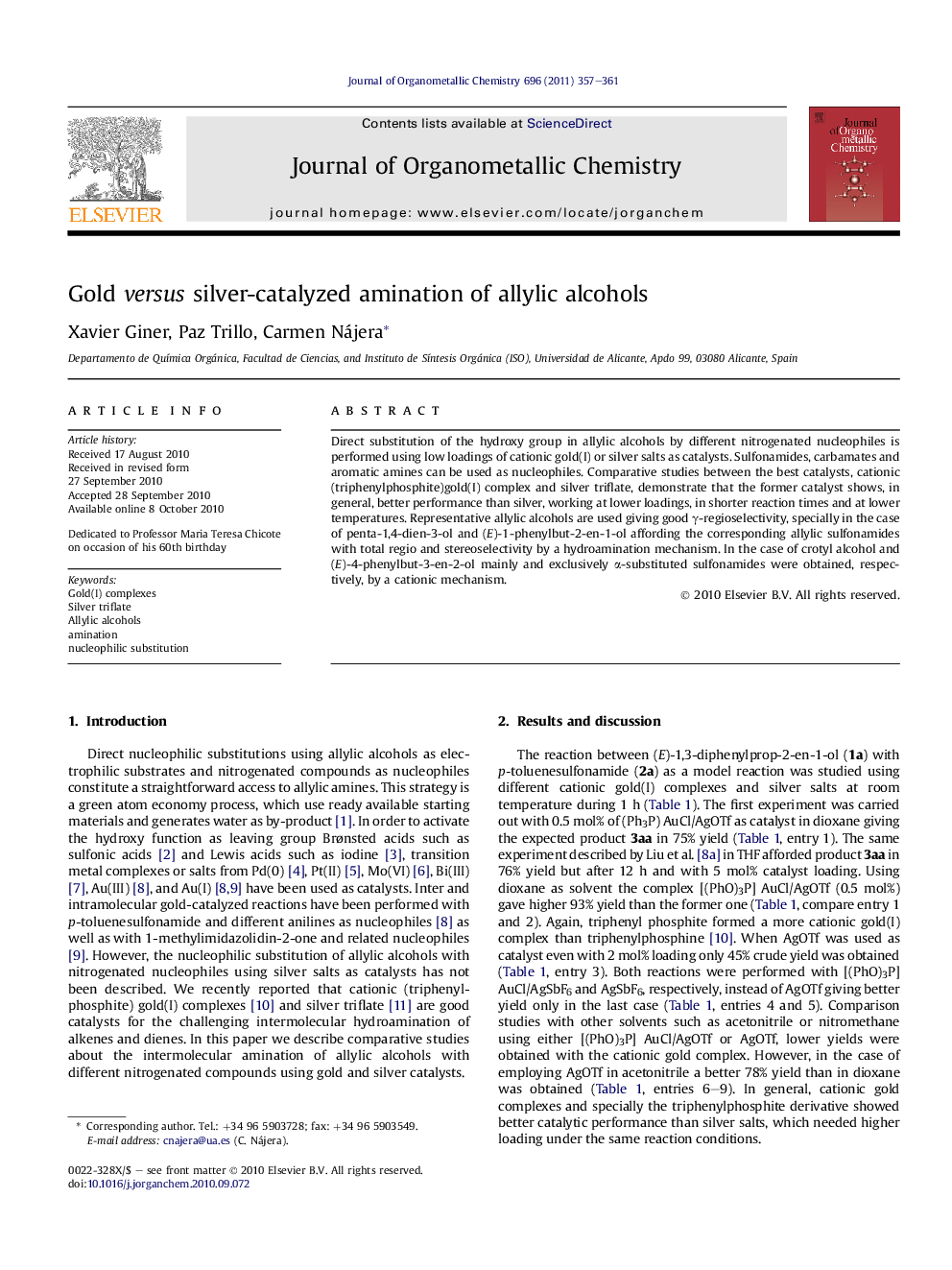| Article ID | Journal | Published Year | Pages | File Type |
|---|---|---|---|---|
| 1324896 | Journal of Organometallic Chemistry | 2011 | 5 Pages |
Direct substitution of the hydroxy group in allylic alcohols by different nitrogenated nucleophiles is performed using low loadings of cationic gold(I) or silver salts as catalysts. Sulfonamides, carbamates and aromatic amines can be used as nucleophiles. Comparative studies between the best catalysts, cationic (triphenylphosphite)gold(I) complex and silver triflate, demonstrate that the former catalyst shows, in general, better performance than silver, working at lower loadings, in shorter reaction times and at lower temperatures. Representative allylic alcohols are used giving good γ-regioselectivity, specially in the case of penta-1,4-dien-3-ol and (E)-1-phenylbut-2-en-1-ol affording the corresponding allylic sulfonamides with total regio and stereoselectivity by a hydroamination mechanism. In the case of crotyl alcohol and (E)-4-phenylbut-3-en-2-ol mainly and exclusively α-substituted sulfonamides were obtained, respectively, by a cationic mechanism.
Graphical abstractRepresentative allylic alcohols have been aminated with sulfonamides, benzyl carbamate and anilines using cationic (triphenylphosphite) gold(I) complex or silver triflate as catalysts affording mainly the corresponding g-aminated compounds, being the former the best catalyst.Figure optionsDownload full-size imageDownload as PowerPoint slideResearch highlights►Direct substitution using allylic alcohols by sulfonamides, carbamates and anilines. ►Cationic (triphenylphosphite)gold(I) or silver triflate catalyze direct amination of allylic alcohols. ►Gold gives in general better performance than silver. ►Depending on the allylic alcohol α- or γ-regioselectivity is observed.
